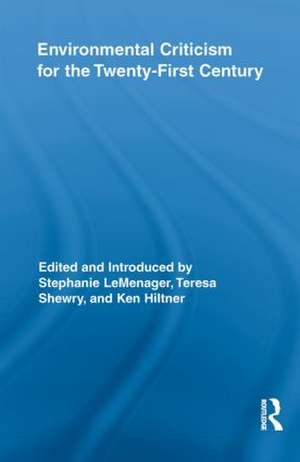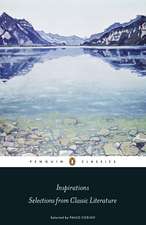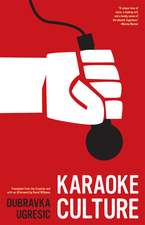Environmental Criticism for the Twenty-First Century: Routledge Interdisciplinary Perspectives on Literature
Editat de Stephanie LeMenager, Teresa Shewry, Ken Hiltneren Limba Engleză Paperback – 13 noi 2012
| Toate formatele și edițiile | Preț | Express |
|---|---|---|
| Paperback (1) | 448.49 lei 6-8 săpt. | |
| Taylor & Francis – 13 noi 2012 | 448.49 lei 6-8 săpt. | |
| Hardback (1) | 1064.36 lei 6-8 săpt. | |
| Taylor & Francis – 6 mai 2011 | 1064.36 lei 6-8 săpt. |
Din seria Routledge Interdisciplinary Perspectives on Literature
-
 Preț: 277.97 lei
Preț: 277.97 lei -
 Preț: 311.26 lei
Preț: 311.26 lei -
 Preț: 377.87 lei
Preț: 377.87 lei -
 Preț: 339.95 lei
Preț: 339.95 lei -
 Preț: 311.56 lei
Preț: 311.56 lei -
 Preț: 309.27 lei
Preț: 309.27 lei -
 Preț: 310.29 lei
Preț: 310.29 lei -
 Preț: 310.60 lei
Preț: 310.60 lei - 9%
 Preț: 1007.24 lei
Preț: 1007.24 lei -
 Preț: 371.71 lei
Preț: 371.71 lei - 28%
 Preț: 817.87 lei
Preț: 817.87 lei -
 Preț: 442.71 lei
Preț: 442.71 lei - 18%
 Preț: 1110.74 lei
Preț: 1110.74 lei - 26%
 Preț: 877.19 lei
Preț: 877.19 lei - 18%
 Preț: 1117.43 lei
Preț: 1117.43 lei -
 Preț: 486.38 lei
Preț: 486.38 lei - 18%
 Preț: 700.62 lei
Preț: 700.62 lei - 18%
 Preț: 1063.31 lei
Preț: 1063.31 lei - 18%
 Preț: 707.86 lei
Preț: 707.86 lei - 18%
 Preț: 1117.07 lei
Preț: 1117.07 lei -
 Preț: 488.29 lei
Preț: 488.29 lei - 18%
 Preț: 1057.05 lei
Preț: 1057.05 lei -
 Preț: 383.63 lei
Preț: 383.63 lei - 18%
 Preț: 1109.99 lei
Preț: 1109.99 lei - 18%
 Preț: 1113.16 lei
Preț: 1113.16 lei - 5%
 Preț: 1223.90 lei
Preț: 1223.90 lei - 18%
 Preț: 1036.35 lei
Preț: 1036.35 lei - 18%
 Preț: 1057.89 lei
Preț: 1057.89 lei - 18%
 Preț: 1109.99 lei
Preț: 1109.99 lei - 18%
 Preț: 1052.35 lei
Preț: 1052.35 lei - 18%
 Preț: 1118.82 lei
Preț: 1118.82 lei - 18%
 Preț: 1057.09 lei
Preț: 1057.09 lei - 28%
 Preț: 822.01 lei
Preț: 822.01 lei - 18%
 Preț: 1053.16 lei
Preț: 1053.16 lei - 18%
 Preț: 1112.90 lei
Preț: 1112.90 lei - 18%
 Preț: 1109.99 lei
Preț: 1109.99 lei - 18%
 Preț: 1054.27 lei
Preț: 1054.27 lei - 18%
 Preț: 1112.34 lei
Preț: 1112.34 lei - 5%
 Preț: 1222.85 lei
Preț: 1222.85 lei - 18%
 Preț: 1110.74 lei
Preț: 1110.74 lei - 18%
 Preț: 1111.58 lei
Preț: 1111.58 lei - 18%
 Preț: 1112.21 lei
Preț: 1112.21 lei - 18%
 Preț: 1058.38 lei
Preț: 1058.38 lei - 18%
 Preț: 1059.84 lei
Preț: 1059.84 lei
Preț: 448.49 lei
Nou
Puncte Express: 673
Preț estimativ în valută:
85.83€ • 93.20$ • 72.10£
85.83€ • 93.20$ • 72.10£
Carte tipărită la comandă
Livrare economică 22 aprilie-06 mai
Preluare comenzi: 021 569.72.76
Specificații
ISBN-13: 9780415816380
ISBN-10: 0415816386
Pagini: 310
Ilustrații: 22 black & white illustrations, 22 black & white halftones
Dimensiuni: 152 x 229 x 23 mm
Greutate: 0.43 kg
Ediția:1
Editura: Taylor & Francis
Colecția Routledge
Seria Routledge Interdisciplinary Perspectives on Literature
Locul publicării:Oxford, United Kingdom
ISBN-10: 0415816386
Pagini: 310
Ilustrații: 22 black & white illustrations, 22 black & white halftones
Dimensiuni: 152 x 229 x 23 mm
Greutate: 0.43 kg
Ediția:1
Editura: Taylor & Francis
Colecția Routledge
Seria Routledge Interdisciplinary Perspectives on Literature
Locul publicării:Oxford, United Kingdom
Public țintă
Postgraduate and UndergraduateCuprins
Introduction Section 1: Science 1. The Mesh 2. Posthuman/Postnatural: Ecocriticism and the Sublime in Mary Shelley’s Frankenstein 3. Revisiting the Virtuoso: Natural History Collectors and Their Passionate Engagement with Nature 4. Chimerical Figurations at the Monstrous Edges of Species 5. The City Refigured: Environmental Vision in a Transgenic Age Section 2: History 6. Ecopoetics and the Origins of English Literature 7. Amerindian Eden: the Divine Weekes of Du Bartas 8. Erasure by U.S. Legislation: Ruiz de Burton’s Nineteenth Century Novels and the Lost Archive of Mexican American Environmental Knowledge 9. Shifting the Center: A Tradition of Environmental Literary Discourse from Africa 10. Ecomelancholia: Slavery, War and Black Ecological Imaginings Section 3: Scale 11. Home Again: Peak Oil, Climate Change, and the Aesthetics of Transition 12. Reclaiming Nimby: Nuclear Waste, Jim Day, and the Rhetoric of Local Resistance 13. Imagining a Chinese Eco-City 14. "No Debt Outstanding": The Postcolonial Politics of Local Food 15. Pathways to the Sea: Involvement and the Commons in Works by Ralph Hotere, Cilla McQueen, Hone Tuwhare, and Ian Wedde. Afterword: An Interview with Elaine Scarry
Descriere
This volume showcases the explosive expansion of environmental criticism, which is transforming three areas of broad interest in contemporary literary and cultural studies: science, history, and scale. Visiting texts from the medieval period through the twenty-first century, it brings into focus recent ecocritical concern for the long durations through which environmental imaginations have been shaped. Contributors address environmental institutions and imaginations that complicate conventional rubrics such as the national, local, and global, drawing on both the sciences and the humanities to engage ecological processes such as global climate change, peak oil production, nuclear proliferation, and food scarcity.










